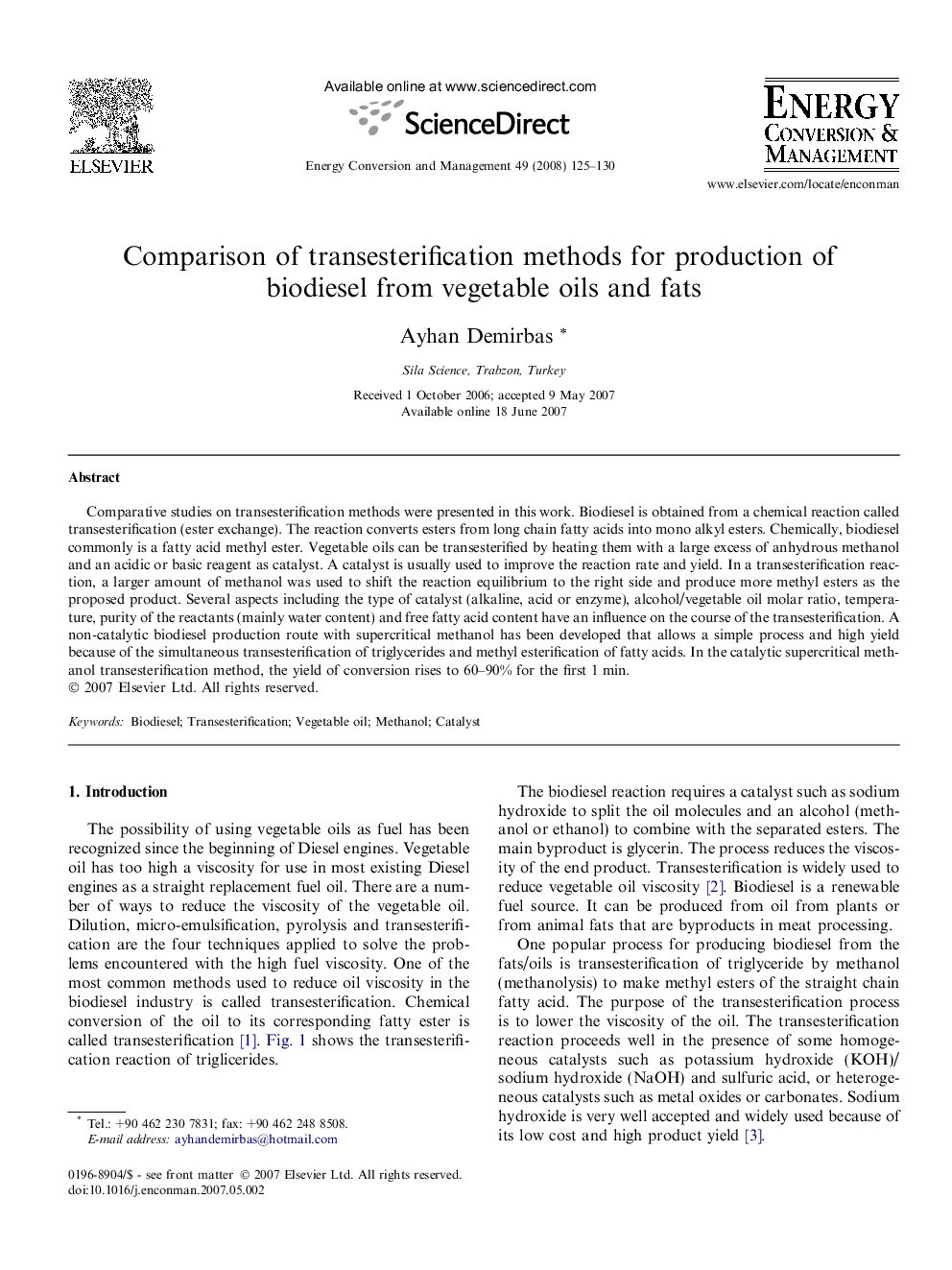| کد مقاله | کد نشریه | سال انتشار | مقاله انگلیسی | نسخه تمام متن |
|---|---|---|---|---|
| 772891 | 897752 | 2008 | 6 صفحه PDF | دانلود رایگان |

Comparative studies on transesterification methods were presented in this work. Biodiesel is obtained from a chemical reaction called transesterification (ester exchange). The reaction converts esters from long chain fatty acids into mono alkyl esters. Chemically, biodiesel commonly is a fatty acid methyl ester. Vegetable oils can be transesterified by heating them with a large excess of anhydrous methanol and an acidic or basic reagent as catalyst. A catalyst is usually used to improve the reaction rate and yield. In a transesterification reaction, a larger amount of methanol was used to shift the reaction equilibrium to the right side and produce more methyl esters as the proposed product. Several aspects including the type of catalyst (alkaline, acid or enzyme), alcohol/vegetable oil molar ratio, temperature, purity of the reactants (mainly water content) and free fatty acid content have an influence on the course of the transesterification. A non-catalytic biodiesel production route with supercritical methanol has been developed that allows a simple process and high yield because of the simultaneous transesterification of triglycerides and methyl esterification of fatty acids. In the catalytic supercritical methanol transesterification method, the yield of conversion rises to 60–90% for the first 1 min.
Journal: Energy Conversion and Management - Volume 49, Issue 1, January 2008, Pages 125–130